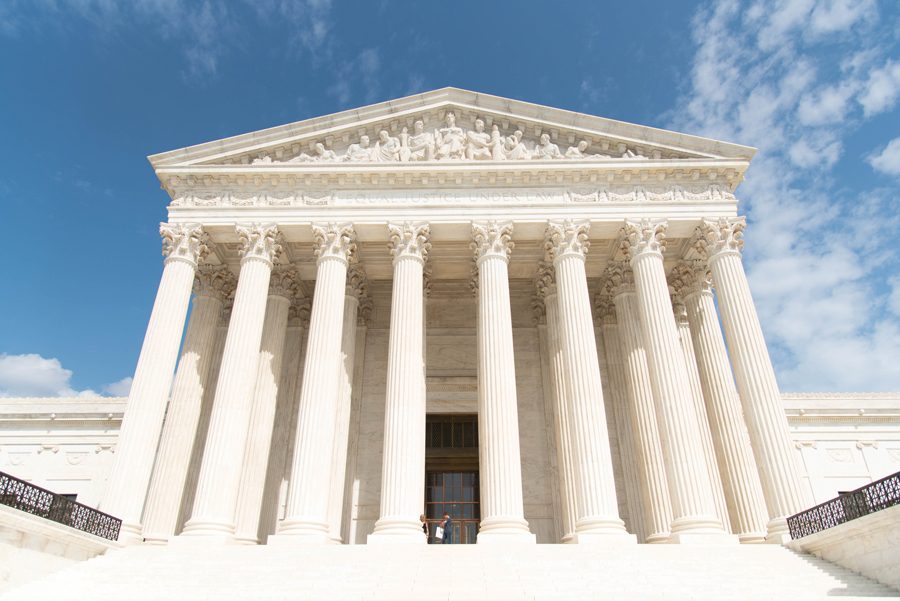Evanston unions feel no repercussions from Supreme Court decision
Allie Goulding/Daily Senior Staffer
The steps of the Supreme Court. In late June, the Court overturned an Illinois law obliging public sector workers to pay a government union in order to work.
October 24, 2018
Almost four months after the Supreme Court’s decision banning mandatory union payments, some Evanston unions haven’t yet felt any impacts.
In late June, the Court overturned an Illinois law obliging public sector workers to pay a government union in order to work, even if they are not members of the union. The Court ruled that this “extraction of agency fees from nonconsenting public sector employees” violated the First Amendment.
“Under Illinois law, public employees are forced to subsidize a union, even if they choose not to join and strongly object to the positions the union takes in collective bargaining and related activities,” Justice Samuel Alito wrote for the majority in the 5-4 decision. “We conclude that this arrangement violates the free speech rights of nonmembers by compelling them to subsidize private speech on matters of substantial public concern.”
Now, workers can opt out of union membership without having to pay fair share fees, which funds the union’s collective bargaining and representation, but does not cover the union’s political activities, The Daily reported in July.
Tamara Cummings, general counsel of the Illinois Fraternal Order of Police Labor Council which represents Evanston police, said despite the Supreme Court ruling, the police union has seen an increase in membership. Prior to the ruling, the FOP had about 150 fair share members — workers who paid dues, but were not union members — but now there are only about 80 of these nonmembers.
“(The Court ruling) made people realize the value of unions and the value of our services,” Cummings said. “Not just with respect to collective bargaining, but we also represent them in discipline matters and critical incidents if they’re involved in a critical incident.”
Financially, Cummings said the FOP has seen an increase in dues paid as a result of former nonmembers joining the union.
Billy Lynch, president of Evanston Firefighters Local 742 union, echoed Cummings’ sentiment that unions have remained unaffected at this point by the ruling. He said his union continues to have complete participation from its 97 members.
“It’s important for us to make sure we pass along the message to our members that we will always represent them fairly and equitably,” Lynch said. “Even despite the (Court’s) decision, that’s only going to make us be tighter as an organization, make us work harder for each other, make sure we’re all taken care of.”
Lynch said it’s still the recent aftermath of the Court’s decision, so while no effects have been felt immediately, he foresees impacts in the long-term for other unions. However, he added that firefighters tend to be a closely knit group and he only expects the community to become more unified as a result.
Although the unions representing Evanston police and firefighters have thus far been unaffected by the Court’s ruling, the future is still uncertain. Both the unions are undergoing contract negotiations with the city for next year.
Email: [email protected]
Twitter: @amelialangas


